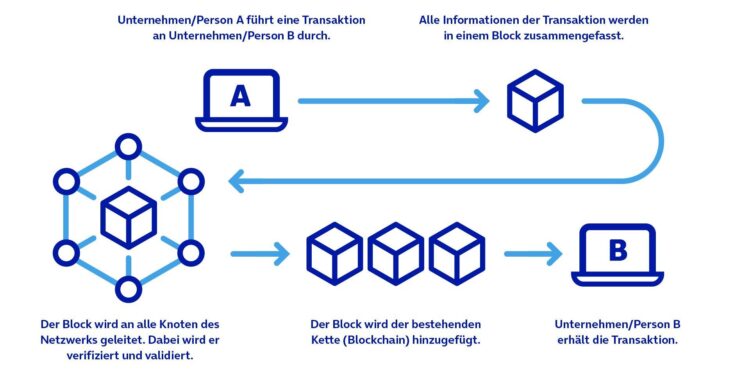Blockchain.com has achieved a significant regulatory milestone by securing a Markets in Crypto-Assets (MiCA) license in Malta, marking a critical step in its expansion across European markets. The move underscores the company’s commitment to operating within evolving regulatory frameworks and offers enhanced trust and compliance assurance to its growing user base. This development was reported by Decrypt, highlighting the increasingly proactive stance of major crypto firms in aligning with the European Union’s comprehensive MiCA regulatory regime.
Blockchain.com Obtains MiCA License in Malta Signaling Regulatory Compliance
Blockchain.com has successfully acquired its MiCA (Markets in Crypto-Assets) license from Maltese regulators, marking a significant milestone in its European market expansion. This license positions the company among the early adopters demonstrating full compliance with the EU’s stringent framework designed to regulate crypto assets. Industry experts view this move as a strategic effort to bolster investor confidence and streamline operations across the European Union under one unified regulatory umbrella.
The MiCA regime aims to establish clear guidelines and protect consumers by setting standards on transparency, governance, and risk management. Blockchain.com’s license unlocks several key benefits:
- Authorization to operate across EU member states without seeking individual local approvals
- Enhanced legal certainty for clients and partners
- Reduced regulatory fragmentation and operational costs
This development highlights Malta’s status as a crypto-friendly jurisdiction and underscores Blockchain.com’s commitment to adhering to regulatory best practices while driving adoption in a maturing blockchain ecosystem.
| Feature | Impact on Blockchain.com |
|---|---|
| Pan-EU Passporting | Expanded market access |
| Consumer Protection | Stronger user trust |
| Compliance Costs | Standardized processes |
Implications for the European Crypto Market and Consumer Protection Frameworks
The recent acquisition of the MiCA license by Blockchain.com marks a significant milestone that could reshape the trajectory of crypto businesses across Europe. With Malta setting a precedent by granting the license under the European Markets in Crypto-Assets regulation, other member states are expected to streamline regulatory approvals, fostering a more cohesive and transparent market environment. This move underscores the increasing prioritization of standardized compliance, which is crucial for both stakeholders and consumers, and signals growing institutional confidence in the European crypto ecosystem.
Key implications for the market and consumer protections include:
- Enhanced regulatory clarity: Uniform rules across borders reduce legal ambiguities, enabling smoother operations for crypto firms.
- Stronger consumer safeguards: Mandatory transparency, risk disclosures, and asset security measures help protect retail investors from fraudulent schemes.
- Market stabilization: Stricter oversight can mitigate systemic risks and improve overall trust in digital asset infrastructures.
- Innovation impetus: A clear framework incentivizes new entrants and technology development within compliant boundaries.
| Aspect | Expected Impact |
|---|---|
| Licensing Process | Streamlined across EU states |
| Consumer Protection | Improved transparency & disclosures |
| Market Growth | Increased institutional participation |
| Innovation | Boost through clearer regulations |
Strategic Recommendations for Crypto Firms Navigating the MiCA Licensing Process
For crypto firms aiming to secure a MiCA license, diligent preparation and clear understanding of regulatory expectations are critical. Start by thoroughly mapping out your operational model to identify which aspects fall under MiCA’s scope. Engaging early with legal experts specializing in European crypto regulations can streamline the process, helping firms avoid common pitfalls like incomplete documentation or non-compliance with AML/KYC requirements. Additionally, firms should prioritize robust internal governance frameworks that demonstrate transparency and risk mitigation capabilities to regulators.
It’s also recommended to maintain ongoing dialogue with regulatory bodies throughout the application process rather than waiting until submission. Doing so not only clarifies ambiguous requirements but also establishes a cooperative rapport that can expedite approval timelines. Crypto companies should invest in training staff on compliance and reporting standards to guarantee sustained alignment post-approval. Below is a snapshot of key action points for MiCA licensing applicants:
- Comprehensive legal assessment of crypto activities under MiCA
- Enhanced AML/KYC protocols consistent with EU standards
- Transparent capital and risk management disclosures
- Regular engagement with Malta’s MFSA regulators
- Employee compliance training programs to ensure ongoing adherence
| Phase | Focus | Duration Estimate |
|---|---|---|
| Preparation | Documentation & Compliance Review | 2-3 months |
| Submission | Application & Regulator Feedback | To Wrap It Up As Blockchain.com secures its MiCA license in Malta, the firm reinforces its commitment to expanding compliant operations within the European Union’s evolving regulatory framework. This milestone not only highlights the growing importance of MiCA in shaping the crypto landscape but also positions Blockchain.com to better serve its European user base with enhanced transparency and legal certainty. As regulatory clarity continues to take shape, industry observers will be watching closely to see how other major players respond and adapt in this swiftly changing environment. ADVERTISEMENT |
















